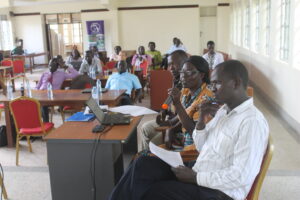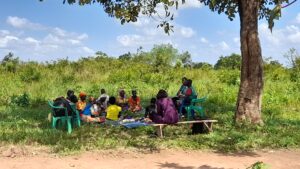Teenage pregnancy remains a major challenge in Uganda, with one in four girls aged 15–19 already pregnant or parenting. In Northern Uganda, the situation is particularly pressing due to post-war vulnerabilities, poverty, and limited access to education and health services. This study, conducted in collaboration with CCVS International, sought to explore the lived experiences of teenage mothers in Kitgum District through in-depth interviews. The goal was to better understand their mental health needs, support systems, and aspirations, and to use these insights to strengthen community-based mental health care responses.
Key Findings
Mental Health Struggles Are Overlooked: While physical health challenges are often acknowledged, the psychological distress experienced by teenage mothers is rarely addressed. Many girls reported feelings of fear, isolation, and hopelessness. Stigma from families and communities further compounded these mental health challenges.
Support Systems Are Weak or Absent: Most girls experienced a lack of emotional support, especially from partners and families. Many were left to raise children alone, while simultaneously grieving broken relationships or experiencing economic hardship.
Counselling Matters: For those who received psychosocial support or trauma counselling (for example, through CCVS), the experience was described as profoundly helpful. Participants emphasized how mental health counselling helped them process traumatic experiences, reduce feelings of shame, and build emotional resilience.
Education and Economic Exclusion Impact Wellbeing: Teenage pregnancy often led to school dropout, cutting girls off from their peers and future opportunities. The resulting financial stress and social isolation worsened their mental health.
Recommendations and Future Considerations
Invest in Community-Based Mental Health Support: Counselling and psychosocial support should be integrated into all services targeting young mothers. Accessible, culturally sensitive mental health care can help prevent long-term trauma and support healthy development for both mother and child.
Strengthen Support Networks: Programs should focus on rebuilding trust within families and communities, and encouraging positive male involvement. Peer groups and mother support circles can reduce isolation and create safe spaces for healing.
Promote Education Reintegration: Clear pathways should be created for young mothers to return to school or access vocational training. Education is a key protective factor for mental health and long-term well-being.
Continue Listening to Teenage Mothers: Their voices and insights are critical. Future programming and policy should be informed directly by the experiences of adolescent mothers to ensure services truly meet their emotional, psychological, and practical needs.





